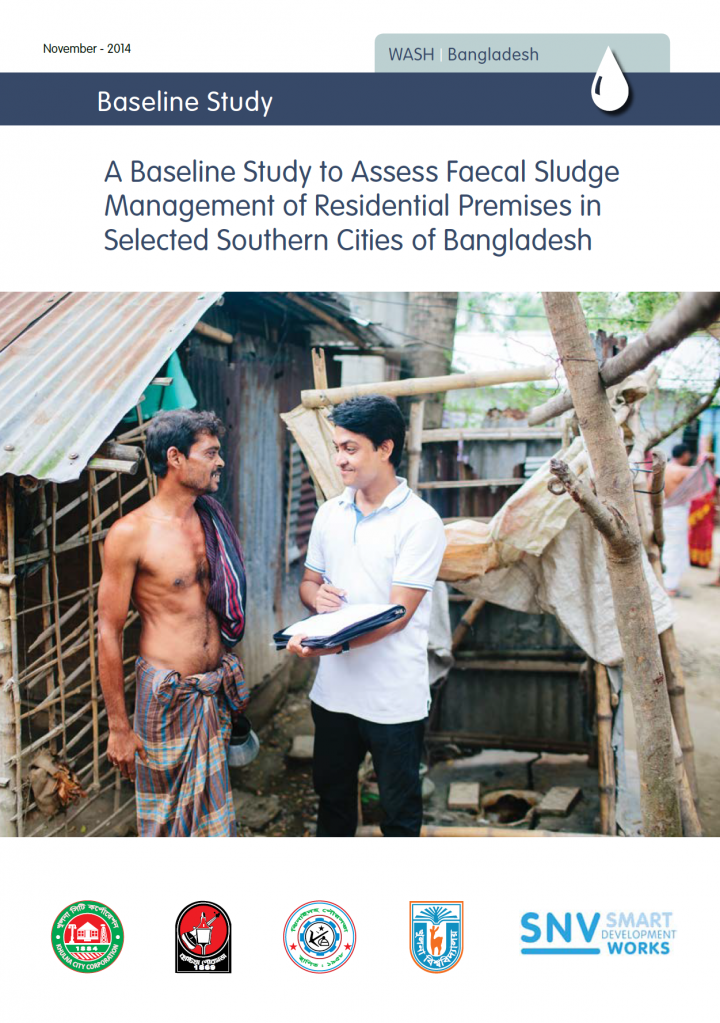A Baseline Study to Assess Faecal Sludge Management of Residential Premises in Selected Southern Cities of Bangladesh
Kabir, A. and Salahuddin, M. (2014)

Published in: 2014
Pages: 50
Publisher:
SNV Netherlands Development Organisation
Author:
Kabir, A. and Salahuddin, M.
Uploaded by:
SuSanA Admin
Partner profile:
common upload
1544 Views
46 Downloads
The main objective of this baseline study was to understand the current situation of faecal sludge management (FSM) and practices of residential premises in three cities in southern Bangladesh: Khulna, Kushtia and Jhenaidah. A second objective was to establish a benchmark for the FSM programme.
The baseline consists of two parts:
1) A quantitative part measuring access to sanitation, hygiene and FSM services at residential premises.
2) A qualitative part assessing the capacities and enabling environment factors affecting safe sanitation and FSM services.
This report covers the first part.
We collected information through a questionnaire survey of sampled households. We employed a stratified random sampling method designed to detect relatively small changes in the survey indicators with a satisfying degree of precision. To conduct the study, we gathered information on five impact indicators:
• Access to sanitary facilities
• Hygienic use and maintenance of sanitation facilities
• Access to hand washing with soap
• Safety of pit emptying and collection, and
• Safe treatment and disposal
Bibliographic information
Kabir, A. and Salahuddin, M. (2014). A Baseline Study to Assess Faecal Sludge Management of Residential Premises in Selected Southern Cities of Bangladesh. SNV Netherlands Development Organisation
Filter tags
Case studies in other formats Decentralised wastewater treatment (e.g. DEWATS) East Asia & Pacific English Faecal sludge treatment processes Faeces or faecal sludge Greywater or wastewater Peri-urban Urban (entire city)















